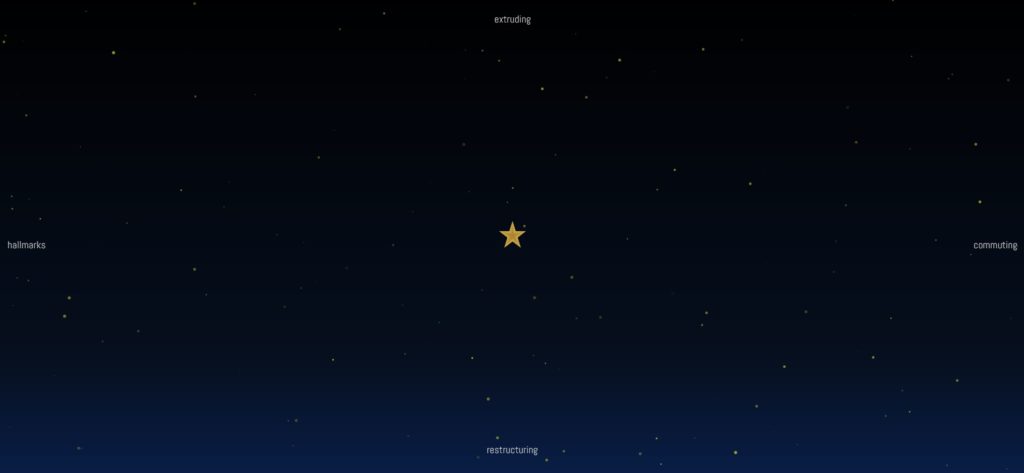Chances are, the title – as well as the listed categories – might sound confusing. “Rabbit Hole”? “Infinite Text”? “the Sublime”? Ironically enough in this context, this program – which I named, rather predictably, Rabbit Hole – precisely exploits two interrelated faces of language:
- Language is both ambiguous and limiting; we have fewer words than we have possible concepts and ideas to express.
- As a result, language is subjective; we create our own meaning.
With all this in mind, Rabbit Hole is many things at once. In a sense, it’s an infinite text generator – a bit like the one in Word Journey. In another, it’s an exploration of the sublime – our inability to go beyond certain thresholds, though we might still be able to taste what lies beyond them. After all, as I implied above, talking about the limits of language, how can we represent the unrepresentable?
In a way, we could say Rabbit Hole is an exploration of art – in the most subjective sense of the word. It is what its user wants it to be.


